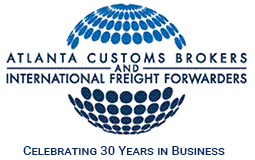5 Tips to Navigate US Import Regulations
Small and medium businesses throughout the United States depend upon international shipping to receive raw materials and finished goods. But navigating customs can be challenging, especially if you are also managing the other daily activities of your business. Working with a freight forwarder and customs broker is critical to avoid delays in receiving your shipments.
With that in mind, here are 5 tips to successfully navigate US import regulations.
Prepare Your Import Documents
Most of the delays that happen in customs start with missing paperwork. Import regulations typically require these four documents:
- Customs/commercial invoice
- Bill of lading
- OGD documents
- Commodity-specific requirements or documents
Ensuring all your documents are in order and properly filed before your shipment arrives, you can move through the import process much smoother.
Know and Meet the Commodity-Specific and OGD Requirements
Many different items can require a permit, license, or additional documentation to satisfy the requirements of a specific government department, such as health, safety, or energy efficiency. Double-checking that all those requirements have been met allows you to move your shipment through the process more easily. That might mean making sure the country of origin is stamped on your imports. Depending on what you are importing, you might need to have the container marked, or each piece might need to be marked, so be sure to reference the J-List exceptions to be sure your goods are marked properly.
Properly Compute Measurements and Weights
When importing goods into the United States, you must be accurate in your measurements and weights. One, exact measurements and weights can ensure the shipping container fits into its slot on the boat, but it can also be used to determine whether your goods have been tampered with or altered. Ensure you complete all appropriate paperwork with accurate information before the shipment leaves the country of origin.
Keep Accurate Records
As your goods are moving through the import and export process, you need to make sure that your documentation meets the requirements for each port. By keeping accurate records of care, you can be ready to answer any questions from customs. This includes following specific regulations to file correct documentation for customs. As the Importer of Record, you bear responsibility for ensuring compliance with all importing laws. But that can be challenging, especially as the regulations and requirements change to reflect new laws or shifts in global shipping operations. So how can you make sure you are in compliance?
Hire a Freight Forwarder and Customs Broker
While it might seem cost-effective to do the work yourself, the truth is that you can easily end up making a mistake that costs you time and money as your shipment sits in the port, unable to enter the United States. To avoid potential issues, using a freight forwarder and customs broker is the best way to comply with US import regulations.
With decades of experience in international shipping, customs, and freight forwarding, Atlanta Customs Brokers and International Freight Forwarders can help. Our team is ready to assist you with importing your raw materials and finished goods from China, India, Taiwan, Thailand, Europe, or the Americas. We start by creating a comprehensive importing plan for your business. To learn more, contact us today!
Atlanta Customs Brokers is one of the oldest and most trusted customs brokerage and shipping firms in Atlanta. Established in 1985, our company has been a fixture in and around the Atlanta airport and Savannah port for more than 31 years. We enjoy working with our international partners and enjoy what we do. If you are a first-time importer or exporter, or a large corporation, we can handle your needs.

